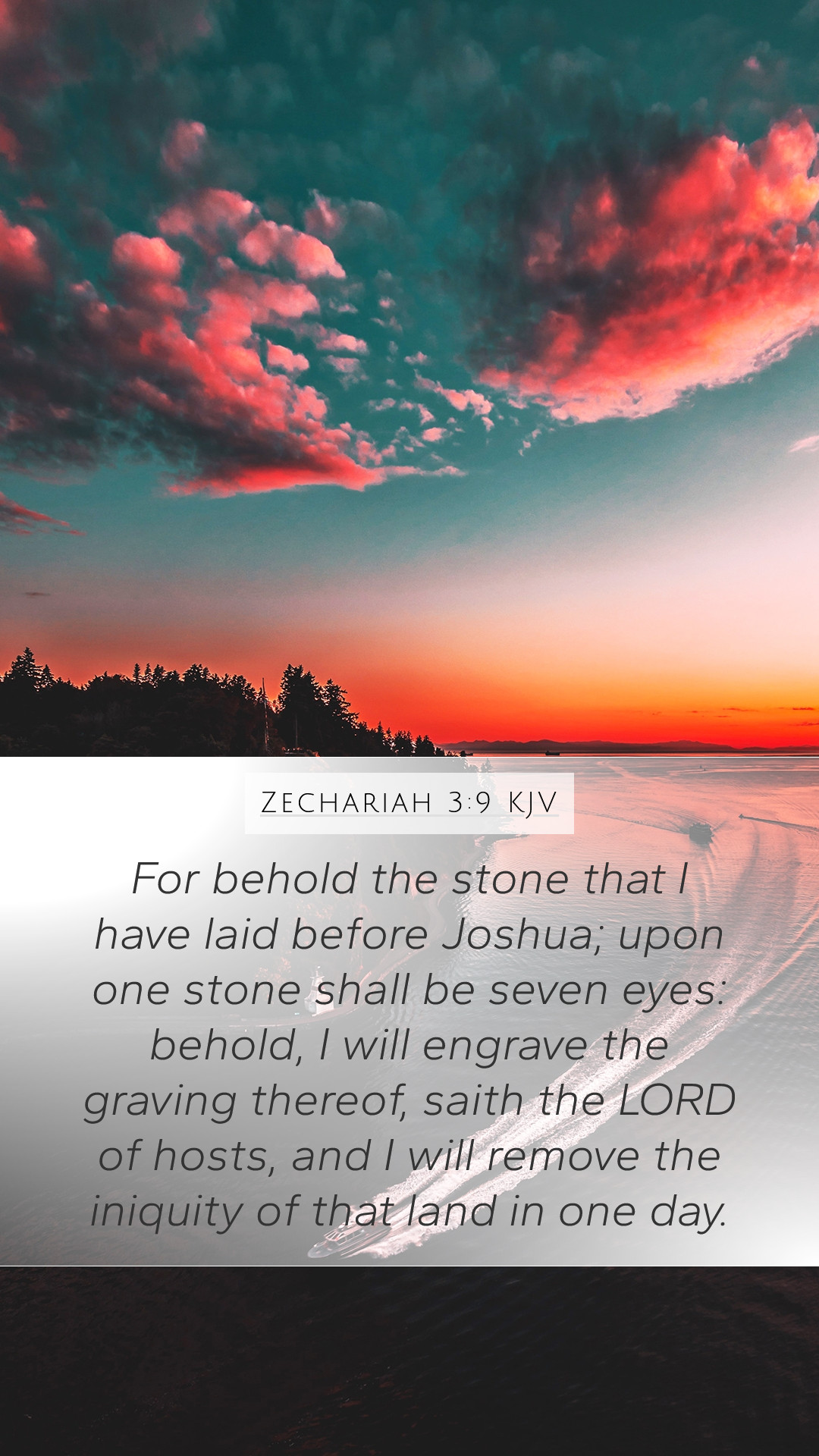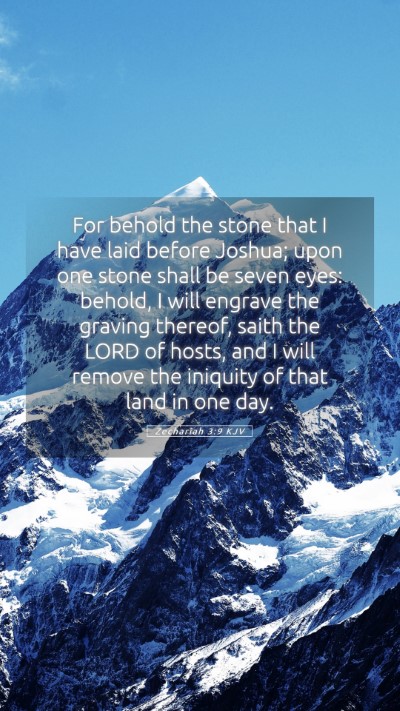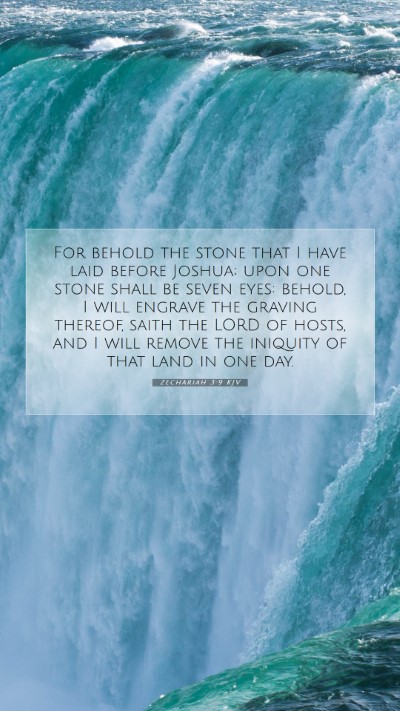Old Testament
Genesis Exodus Leviticus Numbers Deuteronomy Joshua Judges Ruth 1 Samuel 2 Samuel 1 Kings 2 Kings 1 Chronicles 2 Chronicles Ezra Nehemiah Esther Job Psalms Proverbs Ecclesiastes Song of Solomon Isaiah Jeremiah Lamentations Ezekiel Daniel Hosea Joel Amos Obadiah Jonah Micah Nahum Habakkuk Zephaniah Haggai Zechariah MalachiZechariah 3:9 Meaning
What is the meaning of Zechariah 3:9?
For behold the stone that I have laid before Joshua; upon one stone shall be seven eyes: behold, I will engrave the graving thereof, saith the LORD of hosts, and I will remove the iniquity of that land in one day.
Zechariah 3:9 Bible Verse Meaning
Understanding Zechariah 3:9: A Comprehensive Bible Verse Interpretation
Zechariah 3:9 states, "For behold, the stone that I have laid before Joshua; upon that one stone are seven eyes. Behold, I will engrave its inscription,' says the Lord of hosts. 'And I will remove the iniquity of that land in one day.'" This verse holds profound theological significance and serves as a prophetic revelation concerning the future redemptive work of God.
Bible Verse Meanings and Explanations
The verse encapsulates the themes of cleansing, restoration, and divine oversight. Through the lens of various public domain commentaries, we glean enhanced insights into the multifaceted meanings encapsulated within this passage.
Contextual Background
Zechariah, one of the post-exilic prophets, addresses the people of Israel during a time of rebuilding after their return from Babylonian captivity. His prophecies are infused with hope, foretelling the coming of the Messiah and the restoration of God's people.
Verse Breakdown
- “The stone that I have laid before Joshua”: This stone symbolizes a foundation, possibly representing Christ as the cornerstone of faith (Ephesians 2:20). Matthew Henry emphasizes that this stone is set by God himself, indicating divine authority in establishing the faith of His people.
- “Seven eyes”: The seven eyes are often interpreted as the omniscient watchfulness of God, seeing all things. Albert Barnes notes this as a symbol of God’s all-seeing provision and insight into the affairs of men. The number seven also signifies completeness, conveying a sense of total awareness.
- “I will engrave its inscription”: This suggests that the identity and purpose of this stone are clearly defined by God. Adam Clarke remarks that it might imply a covenant or a promise engraved, indicative of God’s commitments to His people.
- “I will remove the iniquity of that land in one day”: This pronouncement signifies a coming day of atonement, where spiritual impurity will be purged. Matthew Henry reflects on this as a prophetic typology of Christ's sacrifice, which achieves the ultimate removal of sin once and for all.
Theological Insights and Applications
The theological implications of Zechariah 3:9 are profound, particularly regarding the dual themes of judgment and salvation. The verse assures believers of God's sovereignty and His plans for redemption. It also illustrates the transformative power of God's grace in cleansing sin.
- Promise of Redemption: The prophetic future of Israel and the promise of redemption is woven into this verse, as seen in the historical narrative of the prophets.
- Encouragement for Believers: This passage serves as consolation for believers undergoing trials, reminding them of God’s oversight and the assurance of ultimate redemption.
- Christological Interpretation: Many interpretations view this verse as foreshadowing Christ, the perfect Lamb who removes sin. The "stone" resonates with Jesus, often referred to as the cornerstone in the New Testament.
Related Biblical Cross References
- Ephesians 2:20: "...Jesus Christ Himself being the chief cornerstone."
- Isaiah 53:5: "But He was wounded for our transgressions, He was bruised for our iniquities..."
- Revelation 5:6: "And I looked, and behold, in the midst of the throne... stood a Lamb as though it had been slain..."
Conclusion
Zechariah 3:9 stands as a testament to God’s unwavering covenantal faithfulness, offering vital Bible study insights for both personal reflection and congregational discussions. Its rich layers of meaning provide a foundation for deeper Scripture analysis and encourage further exploration of biblical themes of sin, atonement, and messianic hope.
By understanding the nuances of this and similar passages, believers can better apply biblical truths to their daily lives, fostering a deeper connection with Scripture and enriching their personal Bible studies.


